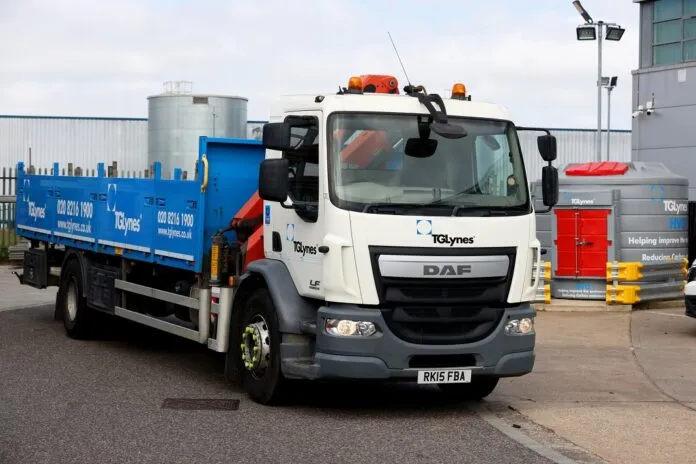
TG Lynes started using Hydrotreated Vegetable Oil (HVO) vehicles in two of its 18 tonne Euro 6 lorries late last year.
The lorries are refuelled by a 10,000 litre HVO tank installed at its Enfield base. The switch has proved so successful both environmentally and economically that TG Lynes is now considering rolling out HVO across all of its heavy goods vehicles, a statement said.
John O’Connell, transport supervisor at TG Lynes, said: “We made the decision to try HVO in two vehicles to see how it worked. We knew that our carbon emissions from these two vehicles would reduce by around 90%, but we hadn’t fully appreciated the additional benefits the move would bring.
“The MPG of each vehicle has improved. These Class 2 vehicles tend to do quite short journeys within the M25 with plenty of stopping and starting. When we were using regular diesel the MPG averaged 11.5. During a similar month this year, with comparable journeys completed, it was 13 MPG.
“Furthermore, lorries of this size need to use specific fuelling stations to re-fill with diesel. This takes planning and time. With our HVO tank on site, there is no queuing or forethought required – the fuel is waiting each morning, allowing us to get on with our deliveries.
“There’s also the benefit of fuel security. As we saw last year, fossil fuel disruption is not unheard of. Should the country face shortages again, we will have the benefit of a stable supply on site. It’s been a really positive test and we are considering rolling out HVO across other vehicles in the fleet – and perhaps, in time, across all of them.”
According to a statement, the projected carbon saving through the course of 2023 through the two HVO lorries is 15 tonnes, the approximate amount an average car would emit were it to drive once around the world.
The company is also exploring the possibility of bringing electric lorries and vans to the business, as well as keeping tabs on the advancements in hydrogen power, a statement added.
